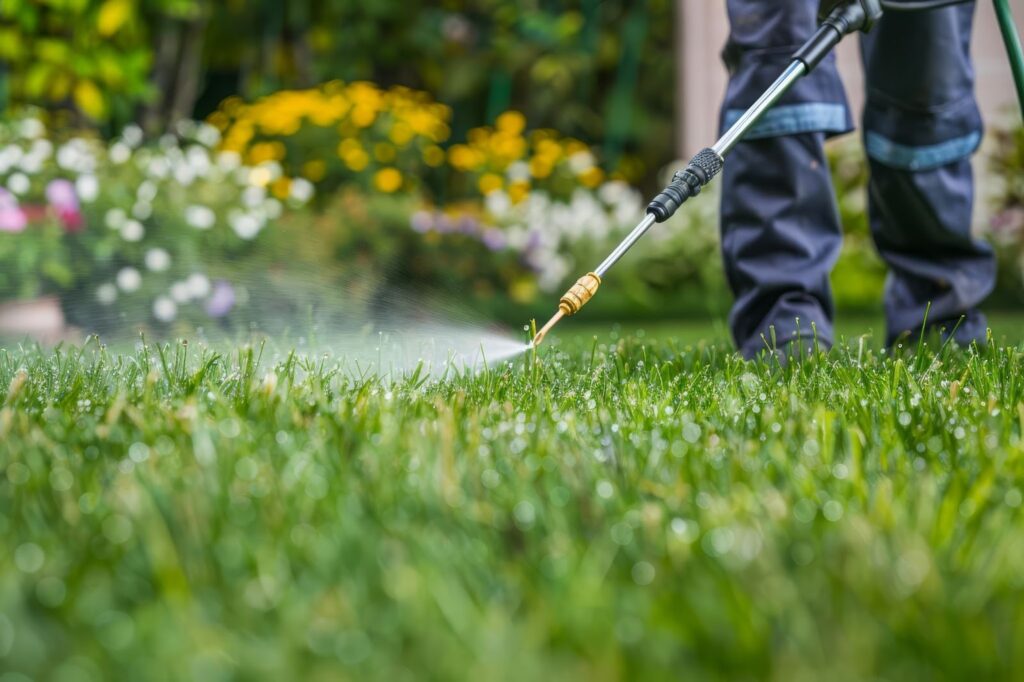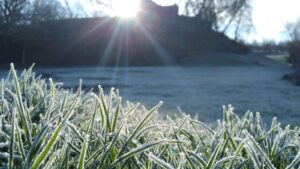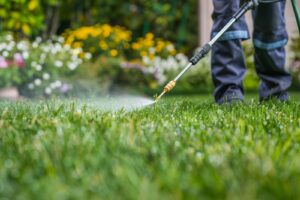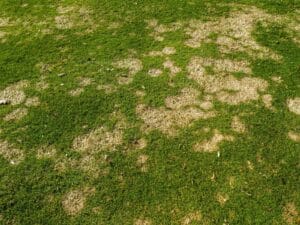Spraying for bugs is common for many homeowners and gardeners looking to protect their plants, homes, and outdoor spaces from pests. However, the effectiveness of bug spray depends heavily on the time of day it is applied. Knowing when to spray for bugs can make all the difference in ensuring your pest control efforts succeed.
This article will explore the best time to spray, the reasons behind it, and the key factors to consider when killing bugs in your home or garden.
Early morning: The prime time for spraying for bugs
The early morning hours, typically between dawn and 9 a.m., are considered the best time for spraying for bugs. At this time of day, temperatures are cooler, and pests are generally more active. Many bugs, including mosquitoes and beetles, feed during the early morning hours, making them easier targets for sprays.
Spraying in the morning also allows the chemical treatments to dry before the day’s heat sets in. Applying bug spray during cooler temperatures allows it to settle properly and reach the bugs before the heat causes it to evaporate too quickly. Cooler morning air also reduces the chances of the chemicals breaking down too quickly under the sun, ensuring that the spray remains effective for killing bugs.
Another important factor is wind. In the early morning, wind speeds tend to be lower, which minimizes the chances of the spray drifting away from the intended target. This reduces waste and ensures that the bug spray hits the pests directly.
Evening: An alternative for killing bugs
If spraying in the morning isn’t possible, the early evening between 5 p.m. and 7 p.m. is the next best time for killing bugs. Cooler temperatures help the spray work more effectively by preventing evaporation, allowing the chemicals to settle properly.
This period is ideal for targeting pests like mosquitoes, aphids, and moths, which are more active at dusk.
Like morning hours, the evening offers lower wind speeds, ensuring the spray hits its intended target without drifting. However, spraying too late risks harming beneficial pollinators like bees and butterflies, so it’s crucial to finish spraying before nightfall.
Avoid midday spraying
Spraying for bugs during midday, especially between 10 a.m. and 4 p.m., is highly ineffective due to higher temperatures, causing the spray to evaporate quickly before it can settle. Many bugs are also less active during the hottest part of the day, hiding in shaded areas, which makes spraying less likely to reach them.
The midday sun speeds up the drying process of liquid sprays, reducing their effectiveness in killing bugs. High winds can also contribute to the spray drifting away from the target area, wasting chemicals, and potentially damaging non-target plants or organisms.
If you’re trying to control pests in a garden, midday spraying can stress plants and lead to leaf burn, making it crucial to avoid this time whenever possible.
Weather conditions to consider when spraying for bugs
While the time of day plays a significant role in the effectiveness of the spray, weather conditions are equally important. Here are a few key weather factors to keep in mind:
1. Temperature
As mentioned earlier, cooler temperatures in the morning and evening are ideal for quickly, reducing its effectiveness.
2. Wind
Always check the wind forecast before spraying for bugs. Wind speeds should be low, ideally less than 10 mph, to ensure the spray doesn’t drift away from your target area. Spraying on windy days can lead to uneven coverage, wasting product, and potentially harming beneficial insects or neighboring plants.
3. Rain
Avoid spraying before or during rain. Rain can wash away the bug spray before it can settle and kill the bugs. If you expect rain within 24 hours, postpone spraying until after the rain to keep the treatment effective.
4. Humidity
High humidity levels can sometimes slow down the evaporation of the spray, which can be beneficial in certain cases. However, be cautious if the humidity is too high, as this can promote fungal growth in the lawn or garden spraying. High temperatures, particularly above 85°F, can cause bug spray to evaporate
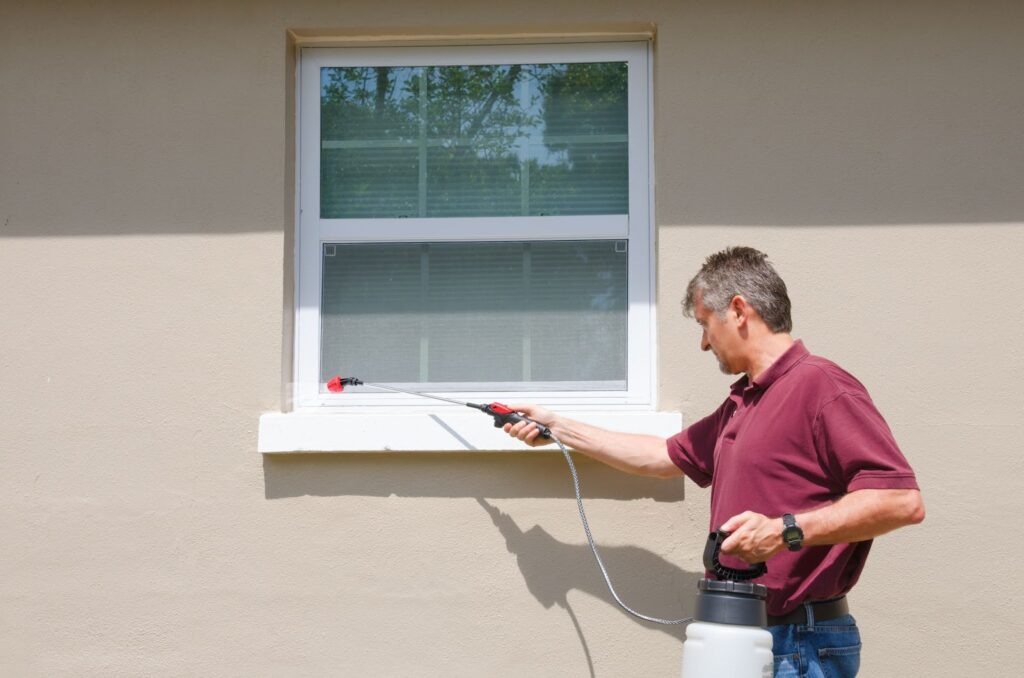
Types of bug sprays and their timing
There are several types of sprays available, each with its own set of considerations for timing. Whether you’re using insecticidal sprays, organic solutions, or systemic insecticides, understanding when and how to apply them will improve their efficiency.
Insecticidal sprays: These sprays work by coming into direct contact with the bugs. Morning or evening applications are ideal for these products because of the lower temperatures and higher pest activity.
Organic sprays: Many organic sprays, such as neem oil or soap-based sprays, work best when applied in the early morning. These solutions often break down quickly in sunlight, so applying them in cooler, shaded conditions allows them to remain effective longer.
Systemic insecticides: These insecticides are absorbed by the plant and kill bugs that feed on it. While the time of day is less critical with systemic products, applying them in the morning ensures that the plant absorbs the insecticide during its most active period of growth.
Best practices for spraying for bugs
To ensure that your bug spray application is effective, follow these best practices:
1. Monitor pest activity: Regularly check your yard or garden for signs of pests. Knowing when and where bugs are most active will help you time your spraying for maximum impact.
2. Use the correct equipment: Use a sprayer that provides even coverage and allows easy application control. Proper equipment ensures the spray reaches the target pests without wasting product.
3. Avoid spraying during extreme weather: As mentioned, avoid spraying during high winds, extreme heat, or rain. These conditions reduce the effectiveness of the spray and can lead to wasted product or unintended damage.
4. Wear protective gear: When spraying for bugs, always wear protective gear such as gloves, goggles, and a mask. Bug sprays, including organic ones, harm you if they touch your skin or if you inhale them.
Let’s recap when to eradicate bugs
Knowing the best time of day for spraying for bugs is essential for achieving effective pest control. Early morning and evening are the optimal times to apply the spray, allowing you to take advantage of cooler temperatures and higher pest activity. Avoid spraying during the midday heat, and always consider weather conditions before applying pest control treatments.
By following these guidelines, you will be more successful in killing bugs and protecting your home or garden from unwanted pests.
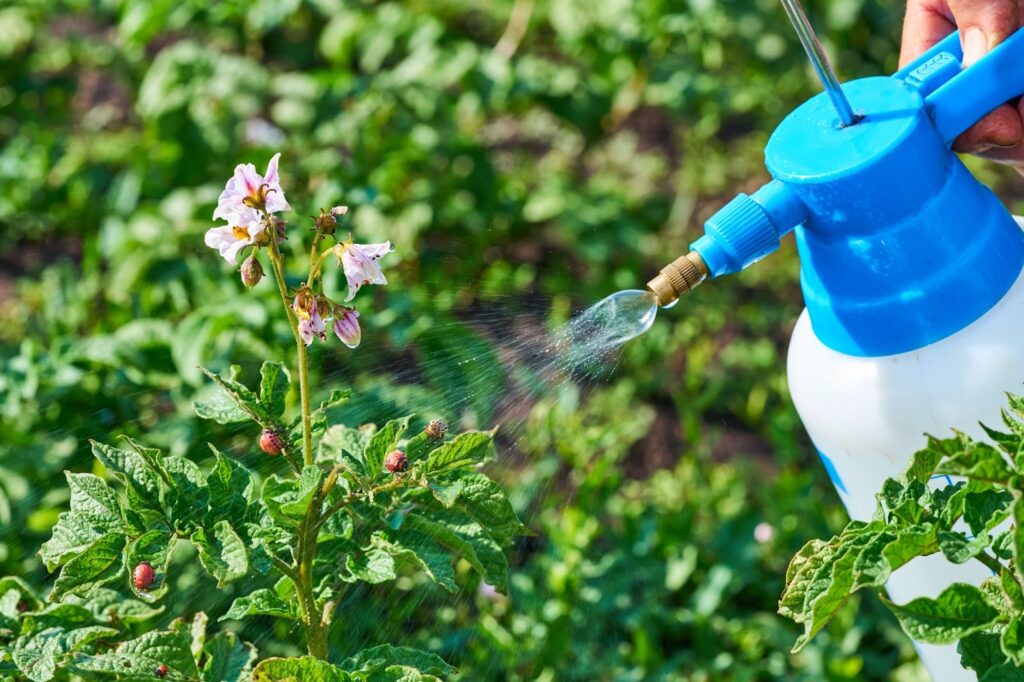
Summit Lawn and Pest Control
Timing matters when it comes to effective pest control. At Summit Lawn & Pest Control, we know the right time of day plays a key role in getting the best results. Our team is skilled in choosing the optimal times for pest treatment, ensuring the bugs don’t stand a chance.
Morning and evening are prime hours for spraying pests since cooler temperatures allow treatments to settle without evaporating too quickly. Whether it’s dealing with morning ants or mosquitoes in the evening, we tailor our approach to your pest problem and time it for maximum efficiency.
Don’t wait until pests invade your home. Contact Summit Lawn & Pest Control today, and let’s create a plan that fits your schedule and keeps pests away when they’re most vulnerable.


